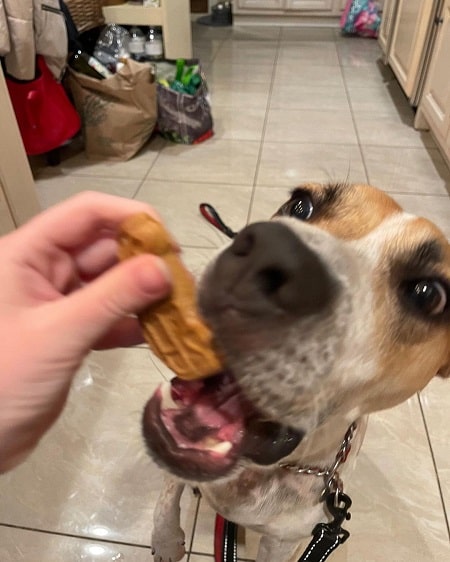English Foxhound Diet
English Foxhound is an intelligent, courageous, and affectionate breed that is high-active and needs a lot of energy. They need daily walks and exercise partners along with a wide space to run freely. So, for English Foxhounds diet is extremely crucial because of the daily activity they perform. Hence make a good quality feeding routine for these breeds that matches their performance level.
On average owners usually feed 2.5 to 3 cups of high-quality dry food for them but some may need more or less than this ratio. Here in this article, you’ll know more things about their feeding methods and technique.
Diets
Protein: Protein is an essential nutrient for the dog’s body as it contains ammonia acids that help to function their body properly. In addition, it makes their skin and hair healthy while develops muscle and tissue. Add around 18-25% of the protein in their daily diet to promote a healthy lifestyle.
Fats: For an active dog like English Foxhound, fats help to fuel muscle and regain energy lost from excessive exercise. The more high-fat food they eat the more capacity they gain to perform at a high level. Moreover, it helps to regulate the body properly, absorb nutrients, and reduce inflammation. So, feed 10-15% of fat to them on daily basis.
Water: Like protein and fats, water is also very important for English foxhounds which helps to digest and absorb the nutrients. It helps to cool their body and maintain regular temperatures. Make sure water is available to them throughout the day and refill it every two hours.
How Much To Feed English Foxhound
The feeding process all depends on their age, weight, activity level, and metabolism. If your pup is below 3 months then feed 4 meals a day as it’s their growing phase. Then at 3-6 months decrease their meal to 3 times a day and 2 meals for adult dogs. Include all the nutrients in their diet for their better growth.

Image Source: Instagram
As English Foxhound is a highly active dog, feed high-quality food as the food quality also makes difference in their health. Also, remember to limit their food and not to overfeed as it can affect their health. moreover, stick to their regular routine when it comes to feeding to maintain their weight.
Dog Food For English Foxhound
While buying dog food for English Foxhounds look for the age and ingredients, and always choose premium-quality food. Here is a list of food best for them:
- ORIJEN Original Grain-Free Dry Dog Food
- Stella & Chewy’s Chewy’s Chicken Dinner Patties Freeze
- American Journey Salmon & Sweet Potato Recipe Grain
- Primal Duck Formula Nuggets Grain-Free Raw Freeze
Supplements For English Foxhound
These supplements only should be fed when they aren’t getting enough nutrients from their daily diet. However, don’t use these supplements if you feed adequate nutrients in their daily diet.
- Glucosamine
- Multivitamins
- Antioxidants
- Probiotics
- Fish Oil
Human Food English Foxhound Can and Cannot Eat
There are several human foods that can be given to dogs but at the same time, some foods can be toxic for their health. So, always check the food before feeding them. Below is the list of human food English Foxhounds can and cannot eat.
Can Eat

Image Source: Instagram
- Meat
- Eggs
- Fish
- Blueberries
- White Rice
- Banana
- Dairy Products
- Cucumber
- Carrots
- Popcorn
Cannot Eat
- Avacado
- Caffine
- Garlic and onions
- Raisins and grapes
- Ice-cream
- Cinnamon
- Chocolate
- Citrus Fruits
Why Is Your English Foxhound Not Eating?
There are various reasons as to why your English Foxhound is not eating properly. However, if they don’t eat for more than two days then take them to the vet for a checkup. Here is some behavioral and medical reason behind your dog not eating.
Behavioral Reasons
- Separation Anxiety
- Travel and unfamiliar surroundings
- Stress
- Dietary change
- Change in Routine
- Undesirable food
- Depression
Medical Reasons
- Bacterial, Worm, or viral infections
- Eating Something They Shouldn’t
- Injury
- Dental Problem
- Broken Bones
- Ear Infection
- Urinary tract infections
- Fleas and ticks
Visit Doglime for more breed feeding information
Tags










